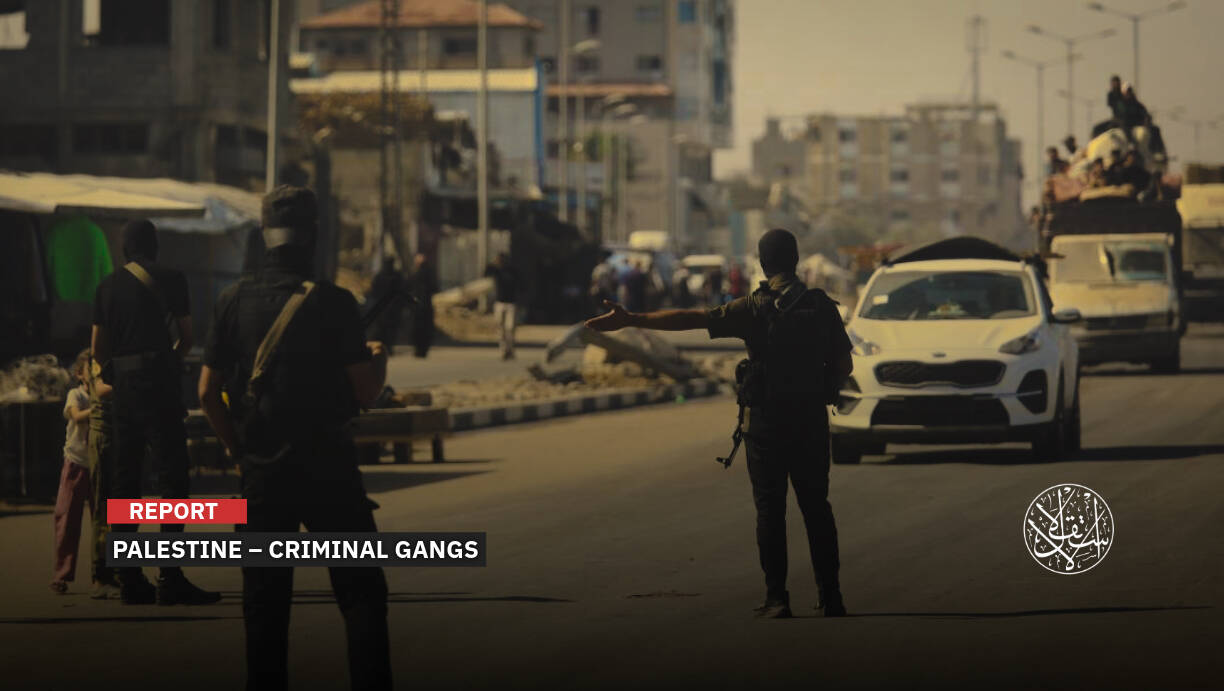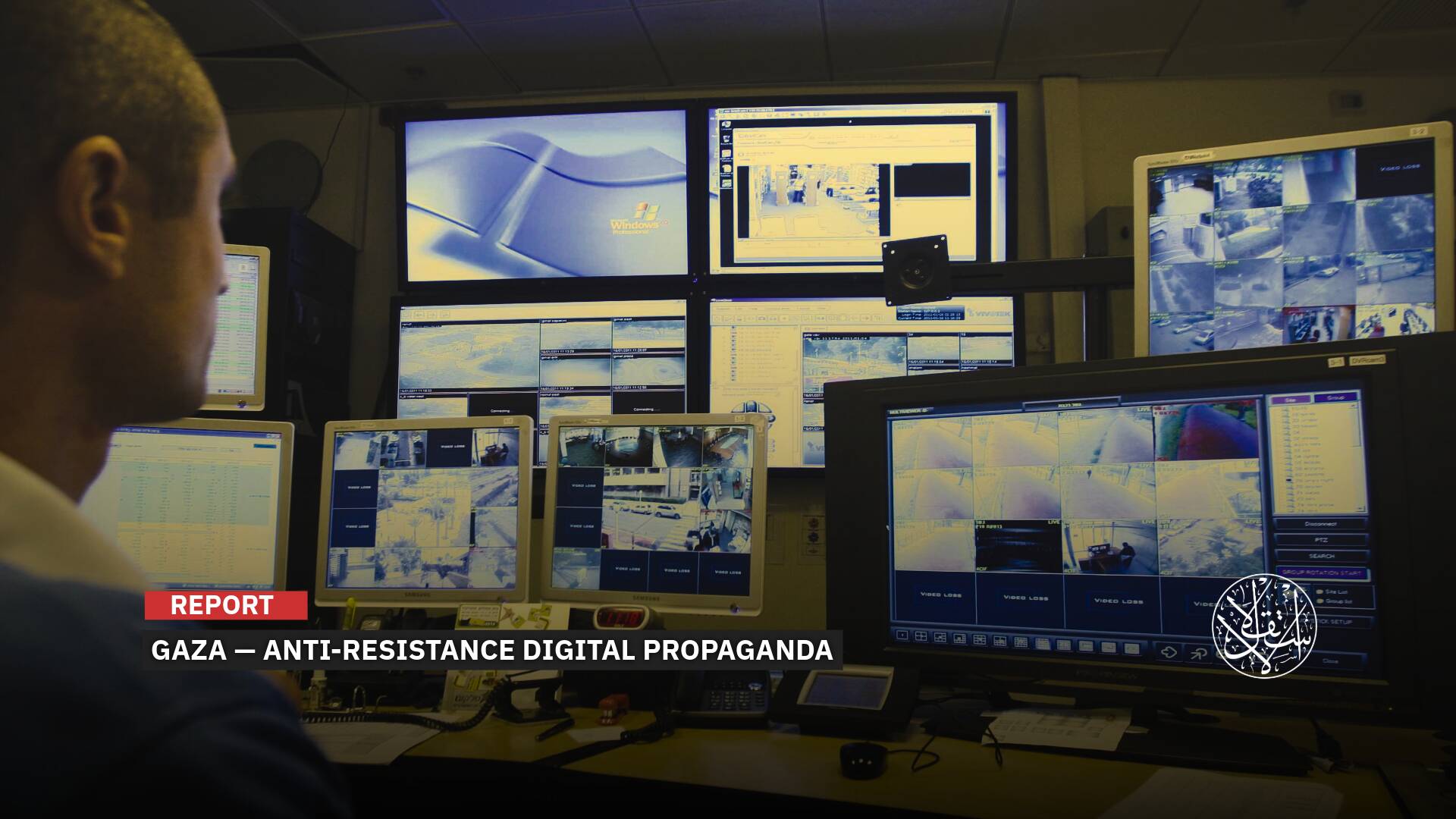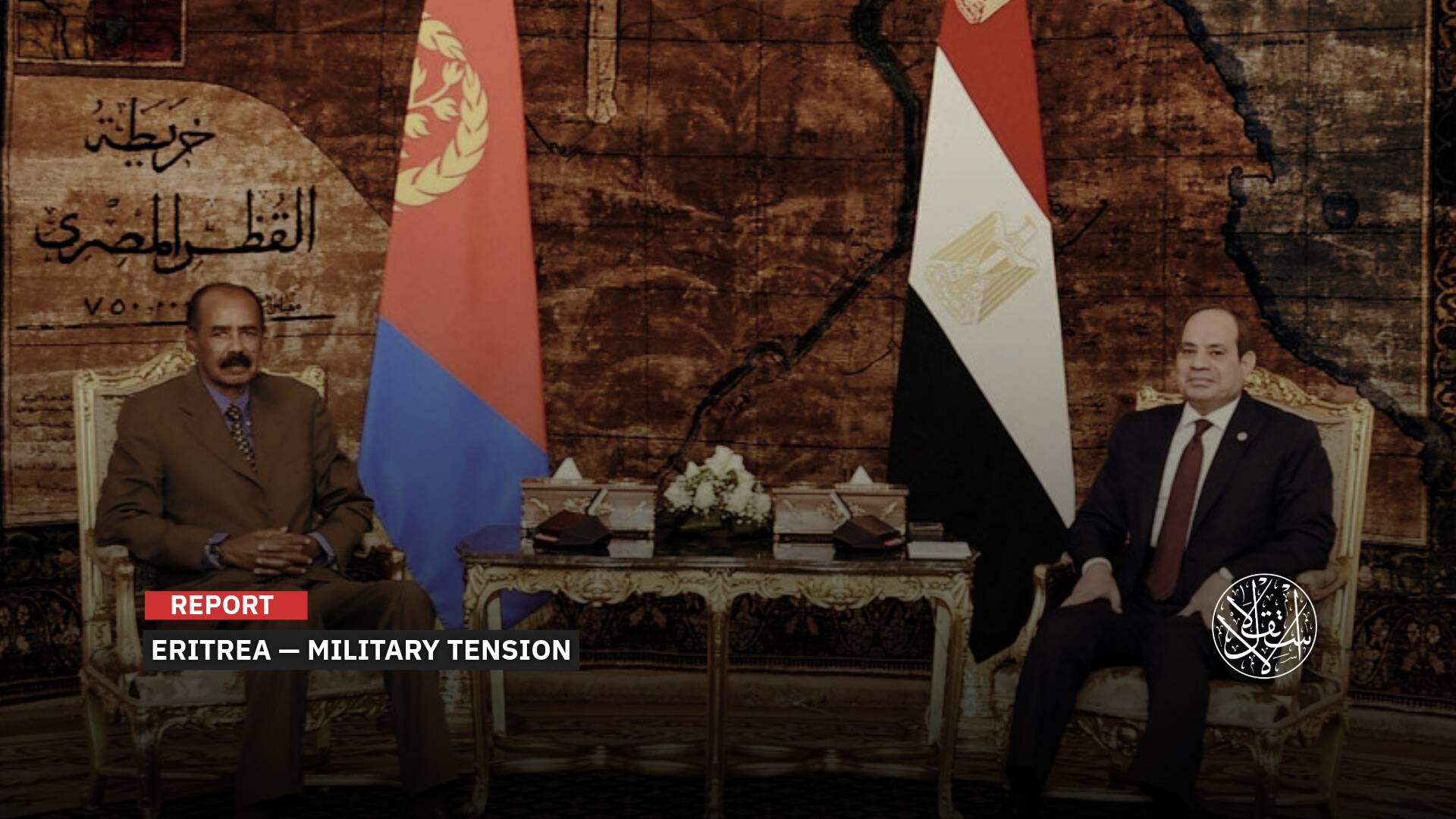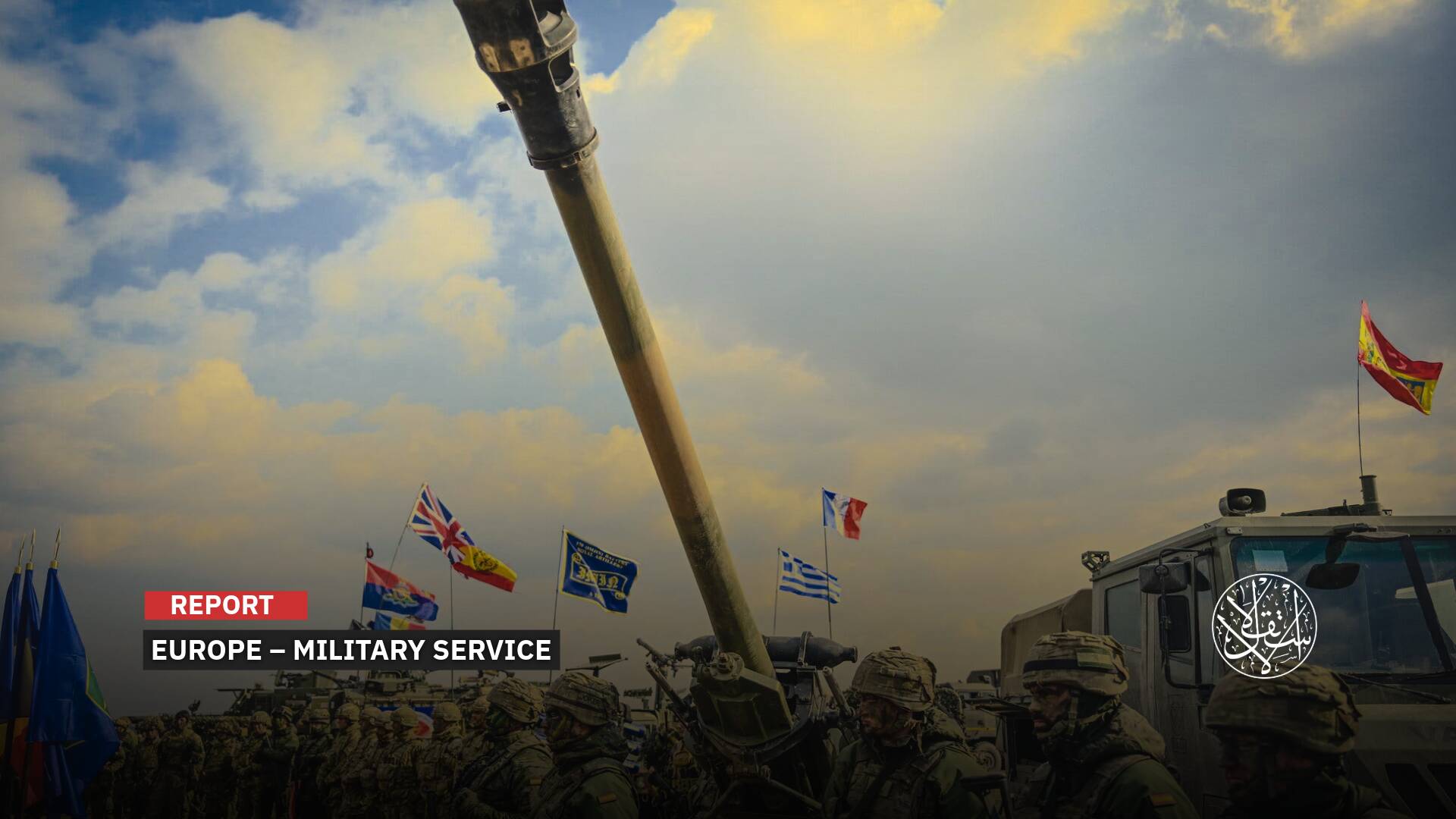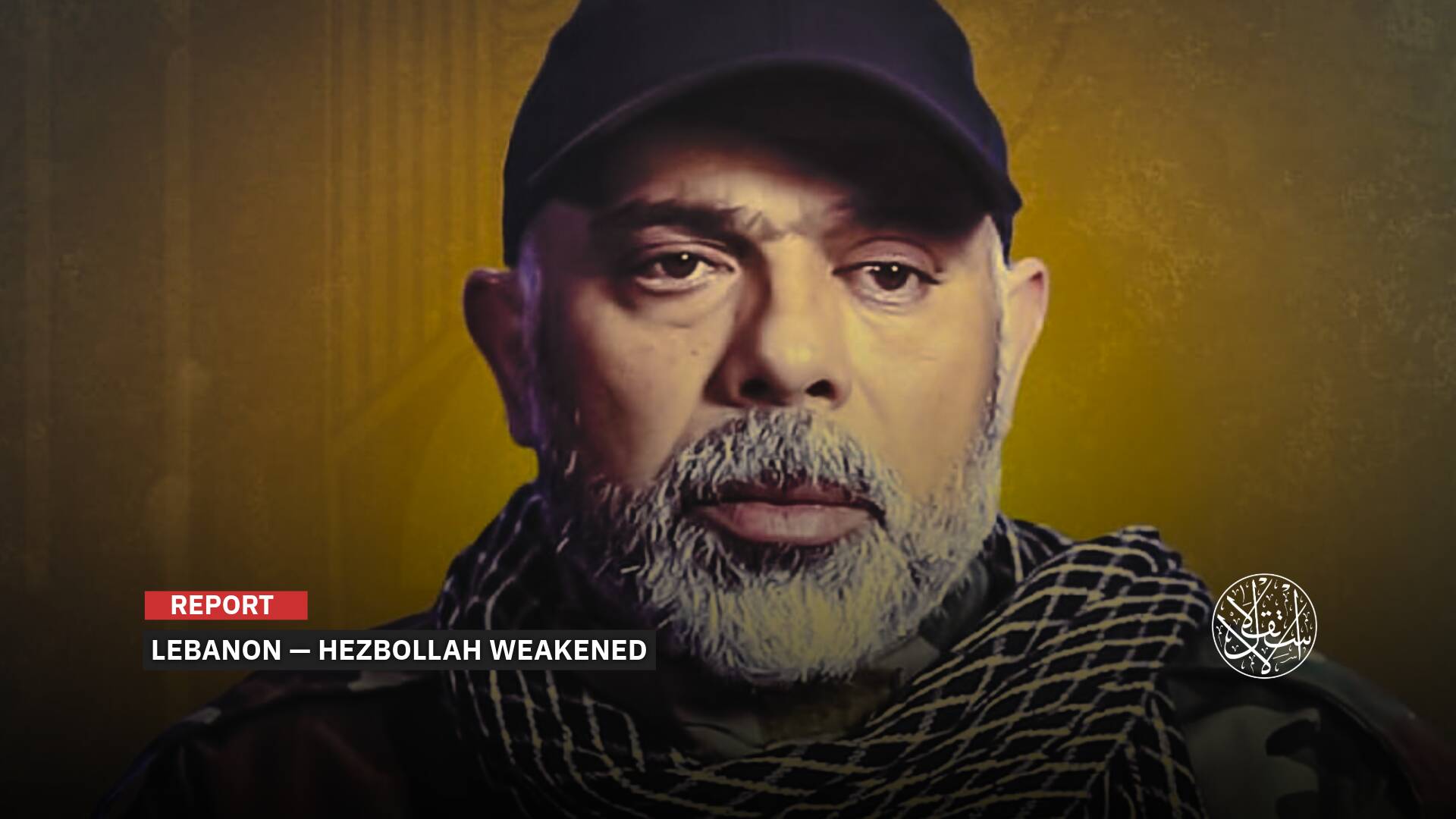Despite bin Salman ‘Fighting Corruption,’ Arms Trade Ignites a War Between Major Saudi Families

In 2017, when the Saudi Crown Prince, Mohammed bin Salman, launched a campaign against financial heads in the country, he issued a royal decree establishing the High Committee for Combating Corruption to investigate the assets of Saudi princes and businessmen.
Among those implicated were families involved in arms trade and signing arms deals with Western entities, such as al-Jaber, Al Ibrahim, Al Fustok, and others.
Simultaneously with implementing radical changes in the kingdom’s structure, particularly within the elite governing circles close to decision-making spheres, the prince aimed to gain full control over specific centers of influence, such as the arms trade and deals.
The powerful members of the old guard were either marginalized or completely crushed in this process, facing various charges to be replaced with a new cadre aligned with the country’s new direction.
According to a report by the Stockholm International Peace Research Institute (SIPRI) in 2020, Saudi Arabia ranked first as the world’s largest arms importer over the past decade, purchasing weapons amounting to a total cost of 116 billion dollars.
Al-Jaber and Al Ibrahim
“Saudi–Austrian real estate tycoon Mohamed bin Issa al-Jaber on one side, and his former partners Waleed bin Ibrahim Al Ibrahim and Majid bin Ibrahim Al Ibrahim on the other, are piling up legal action against each other in a dispute over a $30m payment made in 2002,” according to The Intelligence Online.
The dispute, which came to light on March 31, 2023, revealed their involvement in Saudi arms procurement contracts.
On July 13, 2023, Intelligence Online published a report about the ongoing legal battle between the two Saudi families (Al Ibrahim and al-Jaber) in London concerning the payment of 30 million dollars.
The magazine stated that the legal battle was conducted under unique circumstances, with Waleed and Majid bin Ibrahim participating in the recent session before Judge Mark Pelling at the Commercial Court of London.
It was mentioned that the Saudi authorities still hold the brothers (Waleed and Majid) who are being sued in London by their former business partner, the Saudi–Austrian real estate tycoon Mohammed bin Issa al-Jaber.
However, the travel ban from Saudi Arabia did not prevent the brothers from finding justifications for not paying the 30 million dollars demanded by Mohammed bin Issa, who founded and heads MBI International Holdings based in London.
Mohammed bin Issa claims that he lent the amount to the brothers without a written contract in 2002 when they were heading the Middle East Broadcasting Center (MBC) in London.
The loan was intended to finance the establishment of the Arab Media Group in 2003, which was meant to compete with the Qatari-based Al-Jazeera Media Network and was supported by Bandar bin Sultan bin Abdulaziz Al Saud, the former Saudi ambassador to Washington, who also headed the General Intelligence Presidency.

On May 17, 2023, the Financial Times reported that a court in Los Angeles wants to enable the American citizen John David Britt to testify before British courts, according to a request from Waleed bin Ibrahim.
The latter believes that Brett, who oversaw operations in Mohamed bin Issa Holding Company and many other companies between 1995 and 2013, possesses evidence that could compel Mohamed bin Issa to drop the lawsuit filed against him.
It was indicated that Waleed bin Ibrahim claims that Brett could confirm that the $30 million loan was, in fact, a consultancy fee paid by Mohamed bin Issa to his brother Majid.
Majid played a crucial role in securing a contract from the Saudi Ministry of Defense and Aviation in 1999, where Jadawel, a company managed by Brett at the time, won a contract to lease two complexes to the Ministry.
At that time, Jadawel was headed by Sultan bin Abdulaziz Al Saud, who had been the Minister of Defense since 1962 and later became Crown Prince from 2005 until his death in 2011.
Waleed bin Ibrahim claims that these fees were later changed orally into a loan for financing the establishment of Al-Arabiya channel, and Britt could demonstrate that Mohammed bin Issa was not heavily involved in this project.
On the other hand, the Saudi–Austrian businessman himself testified before the British court, stating that he funded the new media group for investment in the MBC Group belonging to Waleed and Majid. He acted as an intermediary for them in securing contracts with the Ministry of Defense and arms deals.
In any case, the Ibrahim brothers remain under the authority of Mohammed bin Salman and cannot leave the country, while al-Jaber, who is outside the country, continues to engage in legal battles in London and cannot return to the kingdom.
Fustok Family
As for the Fustok family, they were once one of the major players in the Saudi arms trade for many years. They even reached the point of being close relatives to the late King Abdullah bin Abdulaziz Al Saud, and subsequently became prominent arms dealers in the kingdom.
However, with bin Salman’s rise to power, he turned against them, stripping them of their position, and pursued them outside the country under the banner of “the war on corruption.”
On October 28, 2022, the Saudi authorities pursued the business brothers Salah and Mansour Fustok on charges of financial misconduct.
These two men played a significant role for many years in the arms contracts of the Saudi National Guard and were influential figures during the reign of King Abdullah bin Abdulaziz.
The authorities sent an arrest warrant to the International Criminal Police Organization (INTERPOL) to track down Salah and Mansour, with bin Salman determined to arrest them.
Salah Fustok is the father of the former contender for the throne, Prince Mutaib, the son of the late Saudi King Abdullah bin Abdulaziz. Salah played a leading role in arms deals related to the Saudi National Guard for years.

Realtor Prince
During his alleged anti-corruption campaign in November 2017, bin Salman ousted the old guard from business circles in Saudi Arabia. Consequently, the second tier of the elite, including the Al Fustok, Al Ibrahim, and al-Jaber families, fell out of favor.
In this manner, bin Salman took control of the Saudi army, the National Guard, the Royal Guard, the Ministry of Interior, and everything related to these sectors, particularly arms-related matters.
He imposed his authority over all negotiation channels concerning arms contracts and defense deals that the kingdom enters into through two institutions. The first is the “General Authority for Military Industries,” a Saudi body that procures equipment for various military and security entities, including the army, the Ministry of Interior units, the National Guard, and the State Security Presidency. All these reports directly go to Crown Prince Mohammed bin Salman.
The second institution is the “Saudi Arabia Military Industries,” responsible for establishing local joint ventures with foreign defense companies.
The Public Investment Fund, which is led by Mohammed bin Salman, announced its establishment in May 2017 with the goal of localizing 50% of military spending by 2030.
No Saudi king or crown prince had previously accomplished arms deals personally, as Mohammed bin Salman did after toppling Fustok and other influential Saudi families in this regard. He adopted a unique strategy specifically concerning arms contracts.
Absolute Control
On April 5, 2018, the administration of former U.S. President Donald Trump gave the green light for a new arms deal worth $1.31 billion with Riyadh at the end of Crown Prince Mohammed bin Salman’s extensive tour of the United States.
At that time, it was not just a deal accomplished by the young prince, but it represented the will and plan of Trump for Saudi Arabia to play an advanced military role in the region, especially in confronting Iran, according to Germany’s Deutsche Welle on April 6, 2018.
The report mentioned that one of the strategies of the Saudi Crown Prince to counter the increasing pressure on his country’s arms purchases was to link economic interests to military deals.
Particularly, after assuming the role of Minister of Defense, he consolidated his authority by overseeing the giant oil company Aramco, which serves as a strong arm of Saudi Arabia’s foreign policy, as reported by Deutsche Welle.

The idea of Crown Prince Mohammed bin Salman having absolute control over arms contracts and supplying a massive amount of weapons to the kingdom did not sit well with many.
During his visit to Paris on April 11, 2018, French deputies and human rights organizations called on President Emmanuel Macron to halt the supply of French weapons to Saudi Arabia. A legislator from Macron’s party formally requested a parliamentary investigation into the legality of French arms sales to the Saudi-led coalition fighting in Yemen, which has been accused of severe human rights violations there.
However, Mohammed bin Salman, who held exclusive control over arms contracts, had other ideas that went beyond mere control. He aimed to expand unique strategic partnerships for his country, such as his relationship with Russian President Vladimir Putin and his decision to purchase Russian weapons, as well as his ties with China.
This aspect allowed the Saudi Crown Prince to signal to the West that there were alternative sources for weapons if European arms markets were closed off. This also explains why he tightly held the reins on arms contracts independently.
Sources
- Al Jaber and Al Ibrahim brothers' legal battle exposes their defence connections
- Muhammad bin Issa al-Jaber is waging a legal battle against Al-Arabiya [Arabic]
- Canadian advisor: Khashoggi's killing revealed dark sides in the arms trade (interview) [arabic]
- The Arabs top the list of global arms importers: Saudi Arabia is the first after spending $116 billion, and a Gulf country is in third place [arabic]
- Saudi Arms Deals: Bin Salman's Strategy Violates Western Values [Arabic]
- Mohammed bin Salman hunts Abdullah's military equipment broker


